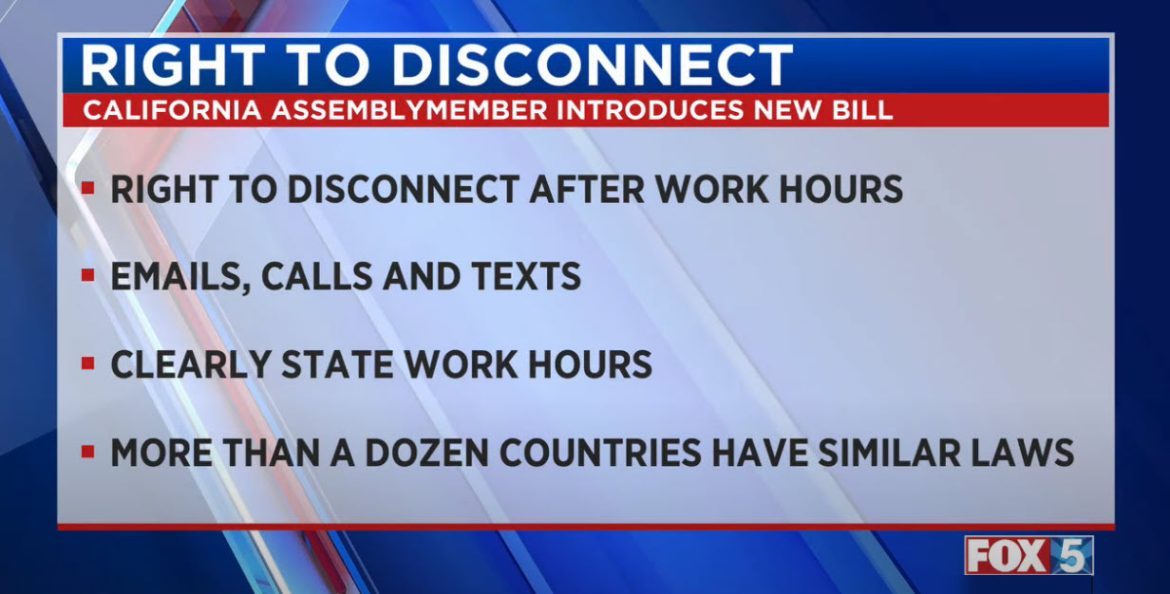A new bill introduced in California seeks to enhance work-life balance for employees by addressing the issue of constant connectivity outside of work hours. The proposed legislation aims to give workers the “right to disconnect” by placing restrictions on employers’ ability to contact their employees during non-working hours.
The bill requires companies to clearly define and specify employees’ compensated hours, ensuring that any work-related communications or tasks beyond these hours are not mandatory. This includes calls, texts, emails, and other forms of communication that employers may use to reach out to their staff outside of designated work periods.
The concept of “right to disconnect” has gained traction globally as organizations recognize the importance of separating work responsibilities from personal time to prevent burnout and promote well-being among employees. If the bill is passed, California would become the first state in the United States to enact such legislation, joining countries like France, Spain, and Italy that have already implemented similar laws.
Supporters of the bill argue that it is crucial for mental health and productivity, as constant work-related communication during off-hours can lead to increased stress, anxiety, and a blurred boundary between work and personal life. By establishing clear boundaries for work-related communications, the bill aims to create a healthier work environment and promote a better work-life balance for employees across various industries.
However, some critics express concerns about potential challenges in implementing and enforcing such regulations, especially in industries with round-the-clock operations or essential services that may require immediate responses from employees. Balancing the needs of businesses with the well-being of workers will likely be a key aspect of discussions surrounding the bill.
As the legislation progresses through the legislative process, stakeholders from both the business community and employee advocacy groups are expected to provide input and feedback to refine the proposed measures and address any potential concerns or challenges.



